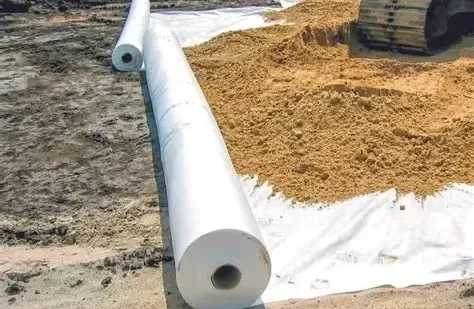Geo Textiles
Geotextiles Used as Protection (or Cushioning) Materials (16090:2013)
Strategic Recommendations for Geotextiles for Protection (or Cushioning) Materials
- Engage Early with BIS & Labs
Apply for BIS certification for IS 16090:2013 well before 1 Jan 2024. Conduct tests for puncture resistance, tensile strength, and mass per unit area at BIS-approved labs. - Partner with Compliance Experts
Collaborate with ERA compliance specialists for documentation, product testing, and ISI marking compliance. - Contact ERA Support Team
📧 cs@eraglobal.co.in | 📞 +91 9599296331 | 💬 WhatsApp
Assistance for BIS licensing, testing schedules, and exemption handling. - Track Notifications & Circulars
Subscribe to ERA Newsletter for real-time updates on Geo Textiles (QCO), 2022 — including S.O. 1706(E), S.O. 2331(E), and MoT orders. - Do a Gap Assessment
Compare current product specs with IS 16090:2013 requirements for thickness, compressive strength, and protection performance under load.

| Section | Details |
|---|---|
| Product Name | Geotextiles Used as Protection (or Cushioning) Materials |
| IS Standard | IS 16090:2013 |
| Title of IS | Geosynthetics – Geo-textiles Used as Protection (or Cushioning) Materials – Specification |
| Quality Control Order | Geo Textiles (Quality Control) Order, 2022 |
| Notification & Amendments |
- Notified via S.O. 1706(E), dated 10 April 2023 - Amended via S.O. 2331(E), dated 24 May 2023 - Final enforcement via MoT Order dated 6 Oct 2023 |
| Final Enforcement Date | 1 January 2024 |
| Objective & Scope | To standardize quality and mechanical performance of geotextiles used as protective layers over geomembranes and critical linings in civil works. |
| Products Covered | Non-woven or woven geotextiles placed as cushioning layers to prevent mechanical damage to geomembranes or containment liners. |
| Exemptions | Export-only products are exempt from BIS licensing and ISI marking. |
| Industries Impacted |
- Landfill & Hazardous Waste Containment - Canal & Reservoir Lining - Tunnel & Metro Waterproofing - Geosynthetics & Civil Engineering Sector |
| Mandatory Compliance | BIS license mandatory under Scheme-I of BIS (Conformity Assessment) Regulations, 2018. ISI mark must be applied on all units for sale in India. |
| Next Steps for Stakeholders | Apply for BIS license, complete testing via BIS-recognized labs, affix ISI mark on packaging prior to sale/distribution. |
| Legal Framework & Enforcement | Enforced under BIS Act, 2016. BIS is the certification and enforcement authority. |
| Penalties for Non-Compliance | May include seizure, license suspension, fines, or imprisonment up to 2 years, or both. |
| Conclusion | Geotextiles for protection or cushioning must comply with IS 16090:2013 and be BIS certified for domestic use from 1 January 2024. |
| References / Annexures |
- QCO: S.O. 1706(E) [10 Apr 2023] - Amendment: S.O. 2331(E) [24 May 2023] - Enforcement Order: MoT [6 Oct 2023] |
Ready to start your certification journey?
Let us help you navigate regulatory challenges and achieve certification with ease. Leave us your details, and we’ll get back to you—or request a free consultation today.
Get in touch with us today
Notification
“Geotextiles Used as Protection (or Cushioning) Materials” have been notified under the Geo Textiles (Quality Control) Order, 2022, through S.O. 1706(E) dated 10 April 2023 issued by the Ministry of Textiles. The QCO was amended via S.O. 2331(E) on 24 May 2023, and the final enforcement date has been confirmed as 1 January 2024 by Ministry of Textiles order dated 6 October 2023.
Overview
These geotextiles are used as cushioning or protective layers in landfill and canal lining systems to shield underlying geomembranes or waterproofing barriers from puncture, abrasion, and mechanical damage. They are installed directly over structural liners or base layers before placing aggregates or filling material.
Objective & Scope
IS 16090:2013 provides the technical requirements for protective or cushioning geotextiles, covering parameters like thickness, puncture resistance, tensile strength, mass per unit area, and compressive performance under load. The standard ensures the materials used are capable of long-term protection in demanding geotechnical and environmental installations.
Products Covered
The specification covers non-woven or woven geotextile layers designed to act as mechanical buffers for:
- HDPE/LDPE geomembrane liners in landfills
- Lining systems in canals, dams, and reservoirs
- Waterproofing membranes in tunnels, metros, and basements
- Subsurface construction zones requiring mechanical shock absorption
Exemptions Provided
Products that are exclusively manufactured for export are exempt from mandatory BIS certification and ISI marking under the Quality Control Order.
Industries Impacted
- Solid Waste & Hazardous Waste Landfills – For liner system protection
- Water Resource Projects – Cushioning layer over canal/reservoir liners
- Tunnels & Urban Metro Infrastructure – In waterproofing protection zones
- Geosynthetics Industry – Manufacturers of technical non-woven/woven cushioning layers
Mandatory Compliance Requirements
From 1 January 2024, all geotextiles used as protection or cushioning materials must conform to IS 16090:2013, and carry the ISI mark. Certification is mandatory under Scheme-I of the BIS (Conformity Assessment) Regulations, 2018, for domestic use and sale.
Next Steps for Stakeholders
- Submit certification application to BIS
- Conduct material testing at BIS-recognized laboratories
- Ensure all production for Indian markets is ISI-marked before sale
- Segregate and document export-only units to claim exemption
Legal Provisions, Enforcement & Penalties
Enforced under the BIS Act, 2016, with BIS as the designated certification and enforcement authority. Penalties for non-compliance include:
- Seizure of products
- Suspension or cancellation of license
- Fines or imprisonment up to 2 years, or both
Conclusion
From 1 January 2024, all geotextiles used for protection or cushioning purposes in civil and environmental works must comply with IS 16090:2013 and carry BIS certification. This ensures the safety, durability, and functional integrity of infrastructure and containment systems that depend on mechanical liner protection.
Ready to start your certification journey?
Let us help you navigate regulatory challenges and achieve certification with ease. Leave us your details, and we’ll get back to you—or request a free consultation today.
